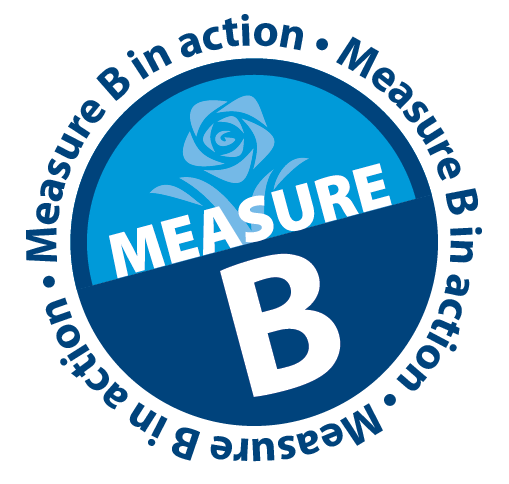What has been done with Measure B funds? (2022 update)
Measure B is a half-cent local sales tax measure approved by voters with the commitment to maintain service levels, invest in high-priority service areas, and build and maintain the City’s economic stabilization reserve fund. Measure B sales tax revenue has helped stabilize General Fund services, protect Roseville’s quality of life, and increase reserves to weather future economic downturns.
On April 20, 2022 at its most recent annual report to City Council, the Local Sales Tax Oversight Committee made up of Roseville citizens reported the following expenditures of the Measure B sales and use tax revenues, which maintained essential services, restored services that had been reduced prior to Measure B, and added services:
Maintained essential services

- Specialized police and fire services
- Fire engine company
- One additional dispatcher
- Job-creation and business-recruitment initiatives
- Maintenance at citywide parks
- Crabb Park
- Central Park
- Pistachio Park
- Street paving
- Street maintenance levels
- Recreation and library programs
- Unsheltered camp cleanup
- Cost of doing business increases
- Library, parks and events stabilization
Restored services that had been reduced prior to Measure B
- Library hours
- 4th of July fireworks
- Fire training and investigations
- Goat grazing for thatch management in open space
- Park maintenance standards
- Industry training and development
Services Added
- Establish new police beat in West Roseville
- One additional police traffic officer
- Maintenance for three citywide parks, allowing for construction to occur
- Fiscal health investments
- Build an economic stabilization reserve fund
- Pay down CalPERS pension obligation to preserve financial capacity for future needs
- Pay down retiree health liability to preserve financial capacity for future needs
What has been done with Measure B funds? (2020 update)
Measure B, a half-cent local sales tax increase to protect Roseville’s essential services on the November 6, 2018 ballot, passed. The vote totals can be found here on the Placer County Elections Office webpage.
With the passage of Measure B, beginning in April 2019, the sales tax rate in Roseville will be 7.75%, still one of the lowest sales tax rates in the region. The City will begin to receive the additional revenue from Measure B in July 2019. The estimated annual revenue of $16 million to $19 million generated by Measure B will be factored into the City’s Fiscal Year 2019-20 budget.
To promote transparency and accountability for the allocation of new sales tax revenue generated by Measure B, the Roseville City Council enacted the provision in the voter-approved measure that calls for Local Sales Tax Oversight Committee.
Our community told us—over the course of a year and dozens of meetings and surveys—what city services are most important, and we are listening.
At its Fiscal Year 2019-20 Budget Workshop on March 13, 2019 the Roseville City Council discussed the possible uses for the additional sales tax revenue the city will receive from Measure B. You can watch the workshop here.
As part of the EngageRoseville effort in 2017 and 2018, the city asked residents for their priorities in city services to guide the city in developing future budgets. Those responses are included in a report given to the City Council in April 2018.
Based on those responses, these are the uses for the revenue the City Council approved in the Fiscal Year 2019-20 budget, which began July 1.
General types of use
- Maintain specialized Police & Fire services
- Keep a fire engine in service at risk of being cut
- Maintain Parks, Recreation & Libraries programs and facility hours, without additional closures
- Begin construction of citywide parks
- Maintain street maintenance
- Maintain flood plain management
- Keep adult literacy programs in place
- Maintain current park maintenance levels
- Continue special event support
Specific ongoing uses
- Establish police Beat 7 on west side with 4 police officers
- Phase in maintenance costs for new citywide parks
- Restore 1 police officer to traffic unit
- Phase in more library hours and materials
- Maintain industry training and development programs
- Stop erosion of park maintenance levels
- Bring back goats paid by General Fund to open space
- Partially restore road funding
- Expand job creation initiatives
- Business recruitment and communications
- Fully fund costs of repair/replacement for buildings and equipment
- Restore fire training and investigation
Specific one-time expenditures to stabilize continuity of services in the future
- Build an economic stabilization reserve fund to help us weather next economic cycle, minimizing drastic cuts
- Pay down pension obligations to create budget capacity in the future
Answers to your questions about Measure B (2018)